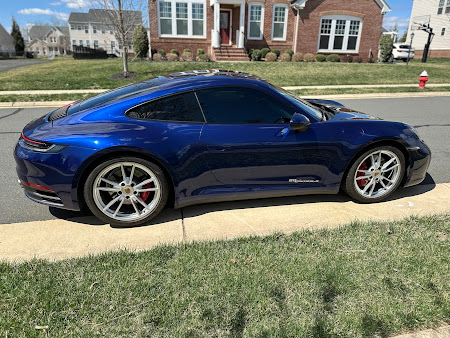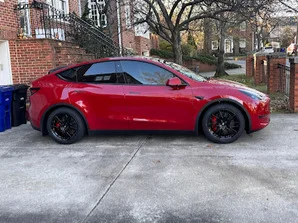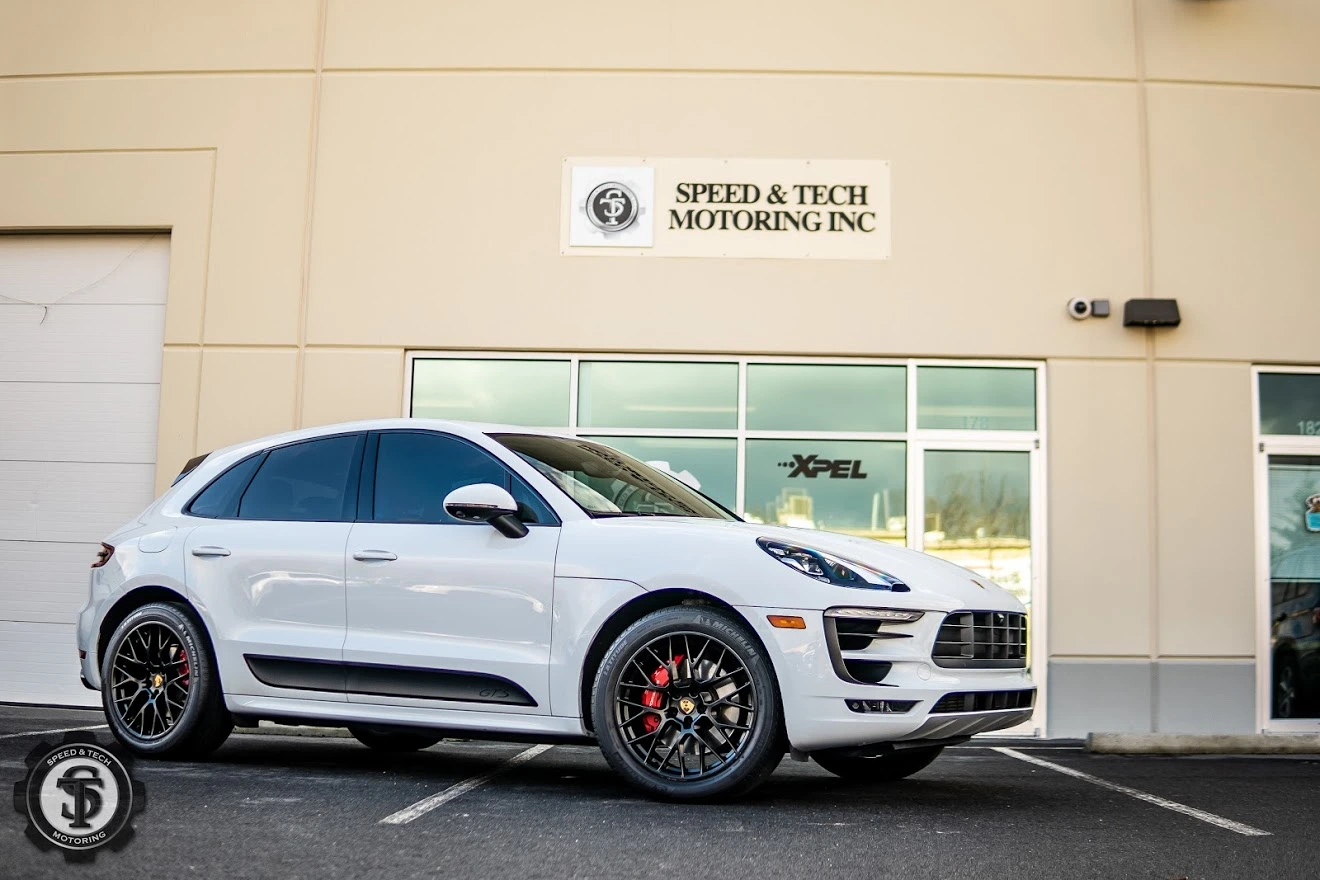If you’re the proud owner of a car with a matte finish, you know it’s not just a paint job—it’s a statement. Matte finishes are sleek, unique, and undeniably eye-catching. But maintaining that stunning look can feel like walking a tightrope. You’ve probably heard about ceramic coating as a top-tier paint protection solution, but is it safe for matte finishes? Will it ruin the texture or gloss it up like traditional paints?
In this deep dive, we’ll explore everything you need to know about ceramic coating and its compatibility with matte finishes. From the benefits to the potential risks, we’ll leave no stone unturned.
1. Understanding Matte Finishes
Before we delve into ceramic coating, let’s first talk about matte finishes and what makes them special.
a. What Is a Matte Finish?
A matte finish is a paint style with a flat, non-reflective appearance. Unlike glossy finishes that reflect light and shimmer, matte paints absorb light, creating a soft, smooth texture.
b. The Appeal of Matte Paint
Matte finishes are popular because they stand out from the crowd. They exude sophistication and offer a modern, understated look that glossy finishes can’t replicate.
c. Why Matte Paint Is Tricky to Maintain
The very characteristics that make matte paint appealing also make it delicate. Scratches, smudges, and uneven cleaning can disrupt its uniform texture, making maintenance a challenge.
2. What Is Ceramic Coating?
Ceramic coating is a liquid polymer that bonds to your car’s paint, creating a durable protective layer. It repels water, dirt, and UV rays while enhancing the paint’s longevity. But is it suitable for matte finishes? Let’s find out.
3. Can Ceramic Coating Be Used on Matte Finishes?
Yes, ceramic coating can be safely used on matte finishes—but with a catch. Not all ceramic coatings are designed for matte surfaces. The wrong product could compromise the texture and appearance of your matte paint.
4. How Ceramic Coating Works on Matte Paint
Ceramic coating for matte finishes works differently compared to coatings for glossy paint. Here’s how:
a. Protection Without Shine
Matte-specific ceramic coatings are formulated to protect without adding a glossy layer, preserving the flat, non-reflective appearance.
b. Maintaining Texture
These coatings maintain the unique texture of matte finishes, ensuring the surface stays smooth and even.
c. Preventing Contaminant Build-Up
Ceramic coatings prevent dirt, dust, and water spots from settling on the paint, reducing the need for frequent cleaning.
5. Benefits of Ceramic Coating for Matte Finishes
Let’s talk about why ceramic coating is a game-changer for matte car owners:
a. Enhanced Protection
Ceramic coating shields matte paint from environmental damage like UV rays, bird droppings, and acid rain.
b. Easy Maintenance
With its hydrophobic properties, ceramic coating makes washing your car a breeze. Water, dirt, and grime slide right off.
c. Stain Resistance
Matte finishes are notorious for showing stains. Ceramic coating prevents stains from penetrating the surface, keeping your paint pristine.
d. Long-Term Durability
Ceramic coatings last for years, providing a reliable barrier against everyday wear and tear.
6. Choosing the Right Ceramic Coating for Matte Finishes
Not all ceramic coatings are created equal. Here’s what to look for when protecting your matte finish:
a. Matte-Specific Formulas
Look for coatings explicitly designed for matte finishes. These products protect without altering the texture or sheen.
b. Professional-Grade Products
While DIY kits exist, professional-grade coatings often offer superior durability and protection.
c. Longevity and Warranty
Choose a product with a proven track record and a solid warranty to ensure long-term results.
7. Common Misconceptions About Ceramic Coating and Matte Paint
Let’s clear up some myths:
a. Myth: Ceramic Coating Makes Matte Paint Glossy
Fact: Matte-specific ceramic coatings maintain the flat appearance without adding shine.
b. Myth: Ceramic Coating Is Unnecessary for Matte Paint
Fact: Matte paint is more delicate than glossy finishes, making protection even more critical.
c. Myth: It’s Hard to Apply Ceramic Coating on Matte Surfaces
Fact: With the right product and technique, application is straightforward.
8. The Application Process for Matte-Safe Ceramic Coating
Applying ceramic coating to a matte finish requires precision. Here’s a breakdown of the process:
a. Preparing the Surface
- Wash the car thoroughly to remove dirt and grime.
- Use a matte-safe cleaner to avoid streaks or damage.
b. Applying the Coating
- Use a microfiber applicator to evenly apply the matte-specific ceramic coating.
- Avoid over-application to prevent streaking.
c. Curing
Allow the coating to cure as per the manufacturer’s instructions. This typically takes a few hours to a few days.
9. DIY vs. Professional Application
While DIY ceramic coating kits are available, professional application is often the better choice, especially for matte finishes. Professionals have the tools and expertise to ensure flawless results without damaging the paint.
10. Maintenance After Ceramic Coating
Even with ceramic coating, proper maintenance is crucial to keep your matte finish looking its best.
a. Use Matte-Safe Cleaners
Avoid harsh chemicals or wax-based products that can ruin the coating.
b. Regular Washing
Wash your car regularly to prevent dirt buildup, using the two-bucket method to minimize scratches.
c. Avoid Automated Car Washes
Brushes in automated car washes can scratch the coating and disrupt the matte texture.
11. Cost of Ceramic Coating for Matte Finishes
The cost of ceramic coating varies depending on the product and application method. Here’s a general breakdown:
- DIY Kits: $50–$150
- Professional Services: $500–$2,000
Professional services may cost more, but they provide better protection and longer-lasting results.
12. Longevity of Ceramic Coating on Matte Finishes
Ceramic coating typically lasts 2–5 years with proper maintenance. Matte-specific coatings are designed to endure without losing effectiveness over time.
13. Alternatives to Ceramic Coating for Matte Paint
If ceramic coating isn’t an option, consider these alternatives:
a. Paint Protection Film (PPF)
PPF offers similar protection but with a thicker, self-healing layer.
b. Matte Sealants
Matte-specific sealants are less durable than ceramic coatings but provide temporary protection.
14. The Verdict: Is Ceramic Coating Worth It for Matte Finishes?
Ceramic coating is absolutely worth it if you want to protect your matte finish while preserving its unique appearance. With the right product and application, it can keep your car looking flawless for years.
15. Key Takeaways
- Ceramic coating is safe for matte finishes when you use a matte-specific product.
- It enhances protection without altering the paint’s flat appearance.
- Professional application is recommended for best results.
- Maintenance is essential to maximize the coating’s longevity.
Conclusion
Owning a car with a matte finish is like owning a piece of art—it demands attention and care. Ceramic coating provides a protective shield that keeps your car looking pristine without compromising its distinctive look. While it’s not a one-size-fits-all solution, choosing a matte-safe product and following proper application techniques ensures your matte finish stays as breathtaking as the day you got it.
FAQs
Q1: Can I use the regular ceramic coating on a matte finish?
No, regular ceramic coatings may add unwanted shine. Use matte-specific formulas instead.
Q2: Does ceramic coating make matte paint harder to maintain?
No, it makes maintenance easier by preventing dirt, water spots, and stains.
Q3: Can ceramic coating hide scratches on matte finishes?
Ceramic coating doesn’t hide scratches. Address scratches before applying the coating.
Q4: Is professional ceramic coating worth the cost for matte finishes?
Yes, professionals ensure even application and long-lasting protection.
Q5: How often should I reapply ceramic coating on a matte finish?
Every 2–5 years, depending on the product and maintenance habits.










